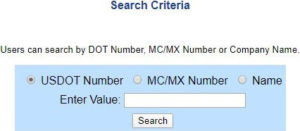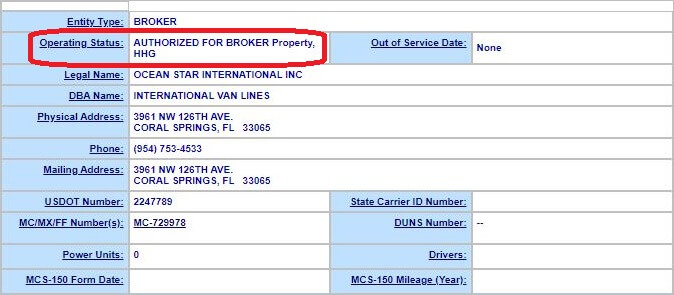There are at least five ways to tell if a moving company is a scam. First, it won’t be licensed by the Federal Motor Carrier Safety Administration (FMCSA). Second, customer reviews will include complaints about prices being higher than the initial quote. Third, the moving company will charge by cubic footage (rather than weight). Fourth, it will ask you to sign a contract before doing an in-home estimate. Lastly, if you can’t find any third-party reviews, the moving company is likely running a scam.
5 Ways to Tell If a Moving Company Is a Scam
For over 8 years Move.org experts have examined pricing, credentials, and real customer reviews to give you (human) recommendations you can trust. See how we review.
With 5+ years of experience, Joe writes about moving and home decor for Move.org and Overstock.com. A frequent mover, he has a library of IRL moving hacks.
It’s good to research companies on your own, but if you’re in a rush, check out our list of the best moving companies. We’ve checked, and all the companies on that list are properly licensed and take scams seriously.
How to tell if a company is a moving scam
1. It isn’t licensed through the FMCSA
Why this is a red flag
Did you know there is a federal agency that tracks and regulates the trucking industry? It’s called the Federal Motor Carrier Safety Administration (FMCSA), and it keeps tabs on the moving industry because moving companies use trucks. If a company isn’t properly licensed through the FMCSA, there’s a very good chance it’s a fraud.
How to check on this
Every reputable moving company has a USDOT (US Department of Transportation) number, which should be listed in the fine print at the very bottom of its website. Once you have a company’s USDOT number, you can use it to search the FMCSA’s database for any information the agency has on that company.

When you first plug the USDOT number into the database, you’ll be presented with a chart about that moving company. Find the “Operating Status” field. If it says “Authorized,” then the company is licensed with the FMCSA.

This is the only surefire way to guarantee a company isn’t just a moving scam, but proper licensing doesn’t guarantee a company will provide excellent moving services or have fair prices.
To check for these qualities, you’ll have to read reviews from third parties (like Move.org) or past customers.
2. It charges customers more money than they agreed to
Why this is a red flag
If most customers report that a moving company charged them far more money than they agreed to, it could mean the company is a scam. While there are valid reasons for a company to raise your price (e.g., your move takes longer than anticipated or you have more stuff to move than you disclosed), excessive price increases and hidden fees are indicative of moving scams.
How to check on this
Customer reviews aren’t always the best sources of information. People tend to leave reviews only if they have something to complain about, which means reviews generally underrepresent customers’ positive experiences, and you should take them with a grain of salt.
Here are a few tips for sifting through customer reviews to get accurate info:
- Read reviews on multiple review sites (Yelp, Google Reviews, Consumer Affairs, etc.).
- Be skeptical of customer reviews that a company shares about itself.
- Actually read the reviews—don’t rely on star ratings.
- Read positive and negative reviews alike.
While you’re reading, pay attention to trends, not outliers. If a majority of customers on every site complain that a company hit them with hidden fees or treated them dishonestly, that’s something you should watch out for. If relatively few customers complain of these things, it might not be anything to worry about.
3. It claims to charge by cubic foot
Why this is a red flag
This is actually one of the most common moving scams. Reputable moving companies (especially interstate movers) charge you based on the weight of your shipment, not how many cubic feet of space it would take up in a moving truck.
If a company gives you an estimate based on cubic feet, beware.
How to check on this
When you get your moving estimate, pay attention to what metric the company uses to calculate prices. If rates are based on cubic feet or some other size metric (square feet, cubic meters, etc.), find a different company. If the estimate is based on weight, then it’s more likely you’re working with a legitimate company—though you should still verify this in some of the other ways we’ve listed.
4. It asks you to pay or sign a moving contract before it does an in-home estimate
Why this is a red flag
Real moving companies won’t ask you to sign anything or pay them a dime until they do an in-home estimate to accurately assess how much your shipment will weigh. If a company skips this step and asks you for payment or a signature immediately after you get an instant moving quote, watch out. It’s probably trying to scam you.
How to check on this
Plenty of moving companies will give you preliminary moving quotes online or over the phone. This doesn’t necessarily mean a company is shady. However, these are ballpark estimates meant to give you an idea of what your move will probably cost. The actual cost is likely to go up at least a little after an in-home estimate (also called an on-site inspection).
After giving you an instant quote, most real moving companies will send an estimator to your home to inspect everything you’re moving. After completing this inspection, the estimator will give you an updated estimate with the actual price of your move. Some companies do this step a little differently, and some even do it over the phone in special cases.
Companies that are trying to scam you will usually skip the in-home estimate and just ask you to sign a moving contract or pay them up front for whatever price they estimated. If a company tries this on you, do not send it your credit card info or sign any paperwork.
5. It doesn’t have third-party reviews
Why this is a red flag
Moving scams are usually pretty short-lived. To avoid repercussions, scammers set up websites and make up company names that they abandon quickly after they have scammed a few customers. This short lifespan means that they aren’t around long enough to get reviewed by third-party moving websites (and the experts at Move.org!), so if you can’t find any reviews of a company, it might be a fraud.
How to check on this
A quick Google search should do the trick. Search for “[moving company name] brand reviews” instead of simply “[moving company name]” to turn up more than the company’s own page.
You can also search for brand reviews directly on Move.org. We thoroughly research every company we review to ensure we don’t recommend any scam artists or frauds. If we recommend a company, then you can rest assured that it’s properly licensed through the FMCSA.
To decide if a moving company is right for you, you should also be asking the following questions:
- Does this company fit my budget?
- Does this company provide all the moving services I need?
- What coverage options does this company provide?
- Do other customers say this company is reliable?
To help you find the perfect company for your situation, we’ve put together a list of other questions you should ask every moving company you might hire.
